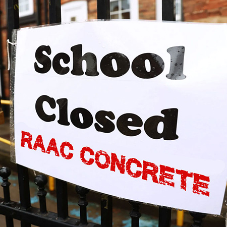The construction industry makes up 6% of the UK economy, contributing around £117 million each year. As all those in construction know, stability can’t be built without a strong foundation. Meaning an industry of such calibre requires a skilful workforce to be able to keep up with demand – which the industry currently doesn’t have.
What is the skills shortage?
Experts have been trying to warn us about the likelihood of a skill shortage within construction for over 10 years and according to The Royal Institute of Chartered Surveyors (RICS), the skills storage is currently the highest it’s been since 2007. But exactly is meant by skills shortage?
In simple terms, the skills shortage is a lack of qualified workers within construction. The RICS conducted research which found that 1 in 20 construction companies believe their workforce aren’t equipped with the correct skills. Initially 1 in 20 may seem small, but as of 2018 there were 325,736 construction firms in the UK – meaning around 16,280 construction companies’ staff don’t harness the skills they need, highlighting the severity of the shortage.
With the skills shortage comes many problems. The main problem is that companies aren’t able to complete their projects on time or within budget due to the shortage of staff. This also makes recruitment increasingly difficult, as there simply isn’t a big enough talent. Both problems cause construction companies to suffer, as they don’t have the staff to take on bigger projects or complete the ones in their diary on time, which has led many smaller companies to collapse.
Why is there a skills shortage?
There are many reasons why a shortage of skilled staff has occurred within the construction industry. However, the main reasons identified were an ageing talent pool and a disinterest from young people.
A report released by the Institute for Public Policy Research states that 750,000 construction workers are set to retire in the next 15 years, creating an even larger skills shortage. An ageing workforce isn’t ideal for the industry, as the role consists of a lot of strenuous labour and whilst older staff are less likely to be injured due to their experience, their injuries are much more severe. As 37% of construction workers are aged 50 and over, it is imperative the industry attract younger workers.
Also, there is a real lack of interest from young people when it comes to construction, a figure which supports this is one released from the Institute for Public Policy Research, which shows that only 20% of construction workers are under the age of 30 – but why is it that millennials are disregarding a career in construction?
An article within UK Construction Week spoke to a student in year 10 named Jacques, who shared why the younger generation stray away from construction. It is due to the stereotype which society have created about construction workers, which pictures them as uneducated and unskilled – a stereotype which needs to be broken.
What’s being done?
As previously mentioned, experts have been warning the industry of a potential skill shortage within construction for over a decade. Therefore, measures have been put in place to try battle the shortage. The Construction Leadership Council created an Industry Skills Plan for the UK Construction Sector for 2021-25, the plan identifies the main challenges construction is facing and how they plan to overcome them.
The plan is to:
• Make construction careers more attractive and make them more accessible. This will be done through a talent view portal which creates an all-in-one shop to be used by new entrants.
• Create new construction training programmes and pathways from higher education into construction to produce more routes into the industry.
What more could be done?
Despite the current measures in place to help tackle the skills shortage, there is plenty more what could be done. In order to close the skills gap, an extra 200,000 skilled workers are required according to the RICS – but where will construction get these people from?
An article posted by New Civil Engineer stated that hiring ex-armed forces personnel could be a solution to the skills shortage. Those amongst the ex-armed forces community are widely recognised as highly skilled labourers, their previous experience and training allows them to quickly learn new skills, making them a great fit for construction.
To attract new and young workers, the benefits of having a career in construction need to be broadcasted and the number of apprenticeship opportunities should be increased. For current construction workers, employers should provide frequent training to enhance their skills and close the gap.
Summary
The people within construction are the power behind the industry. To give them the recognition they deserve and to maintain the growth of the industry, we must as a society highlight how beneficial it is to pursue a career in construction.
Tweet us @BarbourNews to let us know what you think could be done to close the gap!















